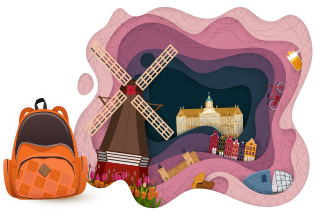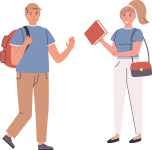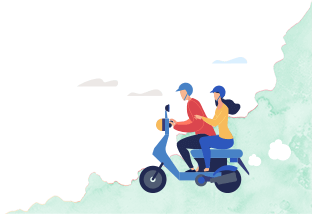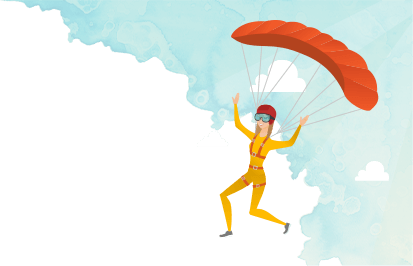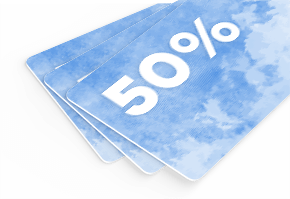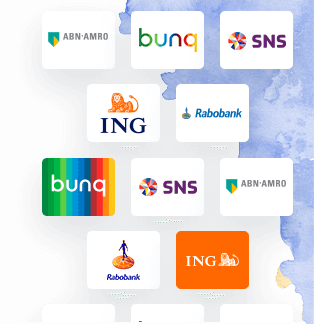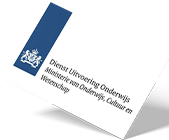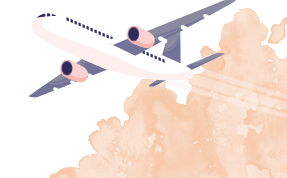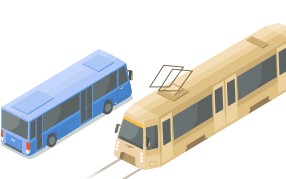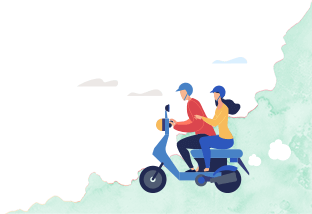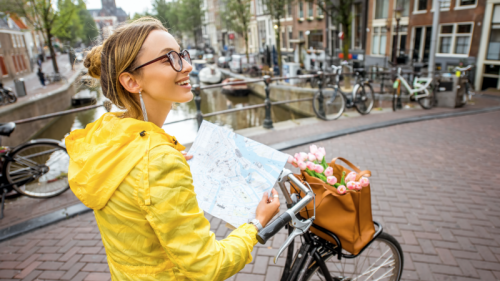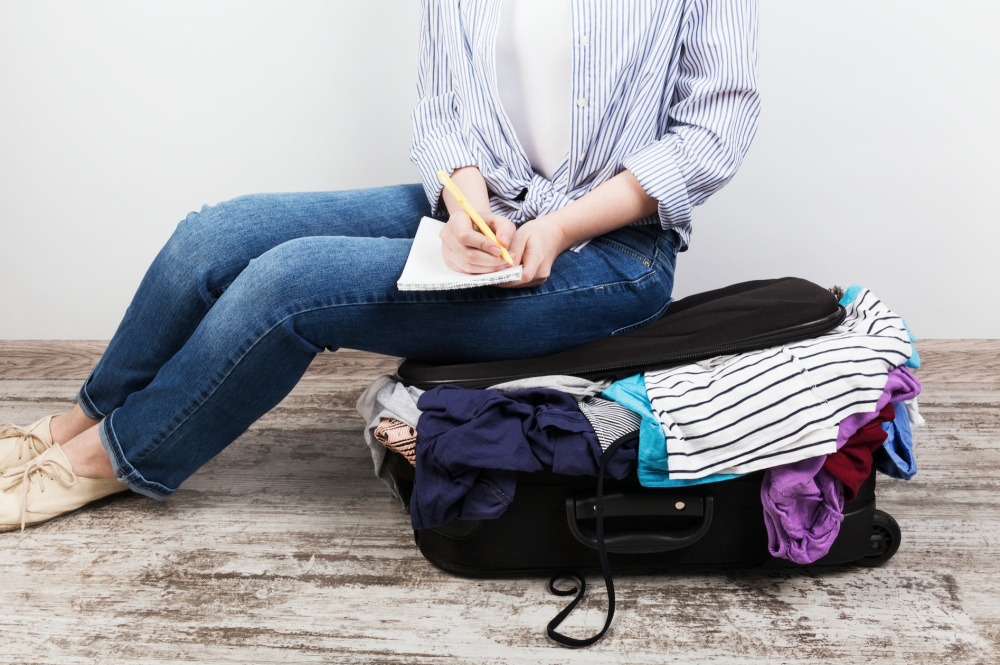
But packing up your life can be tough enough when you stay in your home country. When you move abroad (like if you’re coming to study in Holland) it gets even trickier.
That’s why we put together our top tips on what to pack when you come to study in the Nethelrands.
First things first, the documents - Passport
Of course, this makes a whole lot of sense. If you’re moving abroad to study in Holland, you’ll probably need to use your passport to get there.
Your passport will come in handy time and time again when you live in the Netherlands. You will need your passport number to take out insurance, get a job and to register with your local municipality.
Registering is essential as this is the only way you can open a bank account, pay your bills and rent as well as work legally.
It is possible to live in the Netherlands without registering but this is only convenient if you'll be here just for a short while.
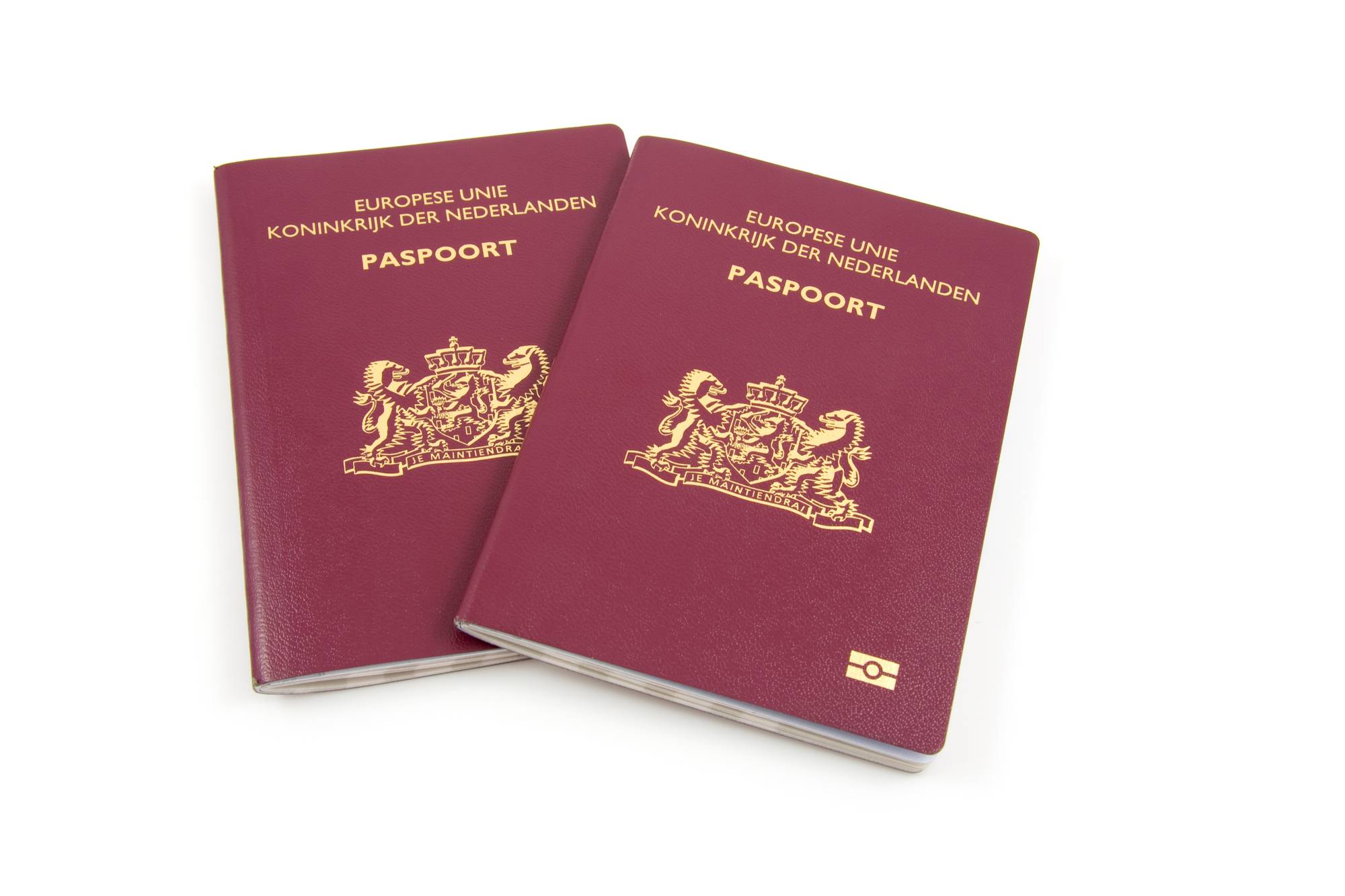
Driving licence
If you have a driving license, bring that along too! Dutch law states that everyone in the country must be carrying some form of identification with them at all times.
Carrying your passport around all day every day could be pretty cumbersome. Therefore, we recommend bringing along a driving license from your home country to carry in your wallet instead.
You can also use it to prove your age when buying things like alcohol. Plus if you’re planning on taking some road trips to explore the beautiful country you’re moving to, having a driving license is essential for hiring a car or for driving a borrowed one.
EHIC card or your health insurance
If you fall ill when you arrive in the Netherlands but haven’t set yourself up with an EHIC card or an alternative form of health insurance, you may have to cough up a lot of cash if you become unwell.
Get insurance that will cover your journey and the first part of your stay in the Netherlands. If you are studying in the Netherlands for a long time, make sure you find a GP and register for health insurance in the Netherlands upon arrival. Student-Helpr can help you do this on a student-friendly budget.
Medical history
It’s also wise to bring along a copy of your medical history. Alternatively, you can ask your GP at home to transfer the files once you are set up with a new doctor in the Netherlands.
By making sure that your new doctor has a copy of your medical history you can stay on top of your health.
Birth certificate
It’s important to remember your birth certificate as this is what you’ll have to use to register with your municipality in the Netherlands.
You may also have to get an apostille on your certificate - this is just a notification that means your certificate it is officially and legally recognized. It’s ideal to make sure you do this before you leave to study in Holland as otherwise your document will have to be sent home and then return to the Netherlands.
If the thought of figuring out how to register here in the Netherlands is stressing you out. Get in touch. We can organize everything for you so that you can start your studies in Holland stress-free.
Educational certificates
Make sure that you bring any prior educational certificates or diplomas along with you when you move to the Netherlands to study. You may be asked to provide these if you decide to switch studies, universities or choose to take a new course.
Ordering new copies from educational institutions can be pricey so organize them in advance and be sure to keep them safe.
Enrolment letter
These are often now sent via email but printing out your enrolment letter and bringing it along to the Netherlands with you could save you time and effort when you arrive.
The enrolment letter will help you access cheaper health insurance and prospective landlords may require to see it when you are trying to find a home.
So now you have the documents sorted, what else should you bring?
Winter clothes
While it’s important to pack light when you move abroad, don’t forget to bring your winter and rain jackets. If you're arriving in the Netherlands at the end of summer it will still be relatively warm, but by the time October hits, the temperature will drop quickly.
Conversely, if you arrive in January or Februari, you may want to wear all your thick clothes while travelling already. Either way, make sure that you're prepared so that you don’t have to spend lots of money to survive the Dutch autumn and winter seasons.
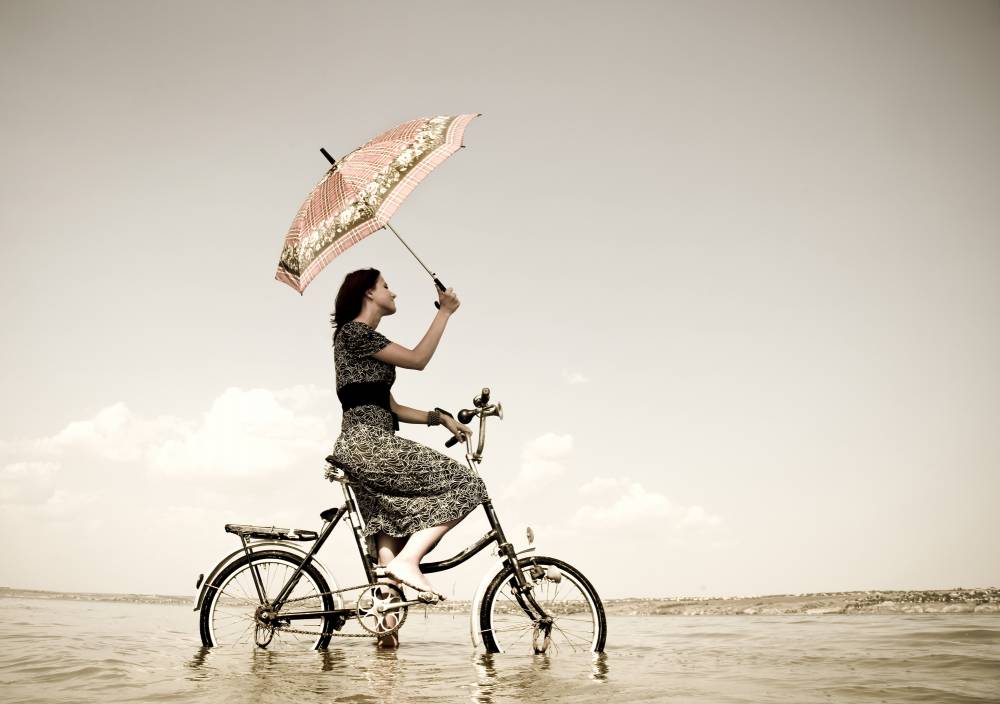
Cycle-friendly clothes
Get ready to spend a lot of time on a bicycle. When considering what clothes to pack for your move, remember that they should be comfortable for wearing on a bike.
Flat shoes and leggings/trousers are a great combination. It’s also wise to choose longer jackets over shorter ones for winter as they will cover your bum and keep you dry.
Plug converters
Remember that electricity sockets may not be the same as they are in your home country. Either bring plenty of converters or be prepared to buy new appliances upon your arrival.
Medication
Stock up on any medication if you are taking this regularly. Some medications that are available in your home country may not be (as) accessible in the Netherlands.
Packing all of the above ensures that you are giving yourself the best start for your new life as a student in Holland. Embrace the challenge of moving abroad – it’s supposed to be fun, after all! And if you do end up forgetting something or struggling to figure things out, don't hesitate to reach out – we’ll tell you everything you need to know!



